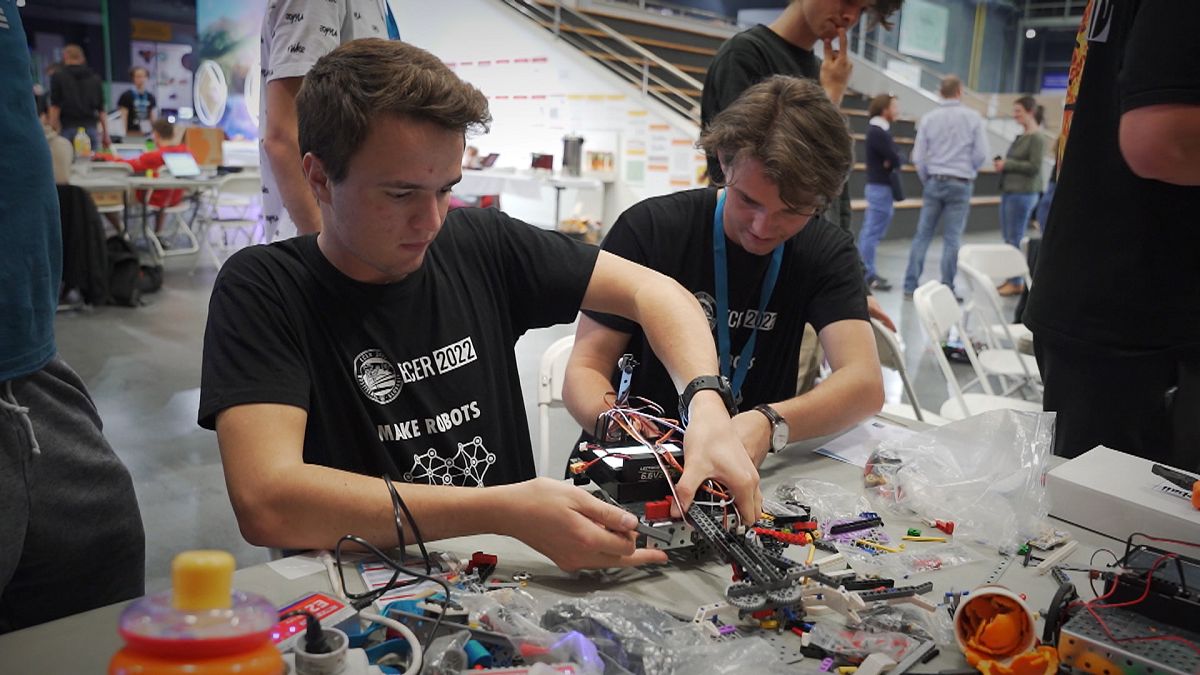Smart Regions heads to Bratislava, Slovakia, to see how a European project called RoboCoop is inspiring the next generation of innovators.
Smart Regions heads to Bratislava, Slovakia, to see how a European project called RoboCoop is inspiring the next generation of innovators.
On the outskirts of Bratislava, more than 100 students from Slovakia and Austria have come together to take part in a robotics challenge. For the teams, the objective is to build advanced robots and drones. But the cross border project called RoboCoop is about much more than that.
The ultimate goal is to inspire and make science, technology, engineering and mathematics - the so-called STEM subjects - a huge amount of fun.
Konstantin's Lindofer's winning Austrian team Double Elimination Bobtail, spent months building their prototype. The device is able to grab, sweep and place objects.
"It works like a hand yeah. [I] learnt a lot of stuff in terms of programming and mechanical use. For example this arm, it does not actually require gears to move. It just uses lift arms. That was quite interesting to find out, to build it that way," he said.
Project funding
The RoboCoop project has a total budget covering its work in Slovakia and Austria of more than €1 million (€1,074,536). 85 percent of that money came from the EU's cohesion policy.
More than 3000 pupils and teachers have already taken part in the workshops, seminars and contests. The goal for those in charge of the initiative now is to reach 4,000 people.
In addition to computer programming, students are given coaching in the hugely important areas of cyber security and data protection. Robocoop's Coordinator Wilfried Lepuschitz says the project's workshops cover many areas of expertise.
"It's a lot of things combined. It's a mechanical construction, it's programming, it's documentation, it's writing a paper to our conference also and presenting the paper, the presentation skills that are also involved. So we try to really have a, let's say really a lot of different domains and fields that the students can learn from."
The initiative also rewards students for their work through a series of awards. A winning formula, that organisers believe will help create Europe’s future innovators.

